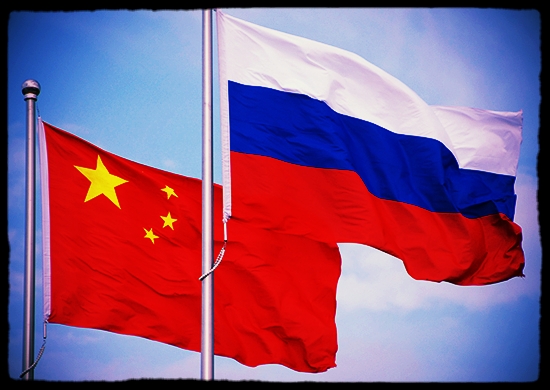
The flags of Russia and China
China and Russia on Wednesday abstained from voting on a United Nations resolution extending the mandate of the UN mission in South Sudan.
China and Russia say they have abstained from voting to extend the mandate of the UNMISS because the U.S. draft resolution did not include the necessary coordination with the government of South Sudan, exerted lopsided pressure on the country, and interfered with its internal affairs.
On Wednesday, March 16, 2023, thirteen members of the UN Security Council voted in favour of the extension.
The 15-nation organ decided to extend the mandate of the United Nations Mission in the Republic of South Sudan, or UNMISS, until 15 March 2024 and to maintain its force levels with a ceiling of 17,000 troops and 2,101 police personnel.
The Council mandated UNMISS to carry out tasks in four key areas — protection of civilians; creation of conditions conducive to the delivery of humanitarian assistance; support for the implementation of the Revised Agreement and the Peace Process.
Others are to monitor, investigate, and report on violations of international humanitarian law and violations and abuses of human rights — while requesting the Secretary-General to inform it of any obstacles to the protection of civilians.
China and Russia abstained from the incorporation of certain languages while raising issues regarding the penholder’s approach.
Anna M. Evstigneeva, Russian Federation representative to the UN Security Council said her country abstained due to their concerns regarding the UNMISS mandate on the protection of civilians, which provides for the broad work of peacekeepers without including the necessary coordination with the Government of South Sudan.
She said: “Resolving inter-communal conflicts can only be carried out in close coordination with local authorities and through a comprehensive approach that removes root causes, builds on South Sudan’s potential, and strengthens its unified armed forces,”
Anna also expressed her regret over the United States’ refusal as a penholder to have a constructive dialogue on finetuning another language such as on climate. Such an approach could undermine the trust of the host State in United Nations activities, she cautioned, noting: “This shows once again there is a need for a fairer distribution of these pen-holding responsibilities among Security Council members.”
China’s representative to the body said the resolution adopted contains elements aimed at exerting lopsided pressure on South Sudan and fails to consider the situation on the ground.
Thus, his country was forced to abstain.
Dai Bing added that elections, finance, and domestic resources management all remain internal affairs; it is not up to the international community to engage in such matters.
“The draft resolution, in making demands and imposing conditions in those areas without the consent of the Government, exceeds the Council’s normal prerogatives, regarding the protection of civilians, he stressed that the Council must always remember that the primary responsibility for that task lies with the Government concerned,” Bing stressed.
“The resolution allows UNMISS to take all necessary measures in that arena and does not require it to obtain the prior consent of the Government to use force.” He added.
Bing also described that as an attempt to create a “power centre above the Government of South Sudan”.
After the extension of the mandate, the permanent representative of South Sudan to the United Nations said the resolution has placed conditions on assistance.
Akuei Bona Malwal said South Sudan is facing many issues, but that does not mean it is giving up its sovereign rights.
He added that if the penholder – the United States – had considered proposals from other delegations, the adopted resolution would have been more balanced and would have reflected the realities on the ground.
The UN Security Council has primary responsibility for the maintenance of international peace and security.
Support Eye Radio, the first independent radio broadcaster of news, information & entertainment in South Sudan.
Make a monthly or a one off contribution.
Copyright 2024. All rights reserved. Eye Radio is a product of Eye Media Limited.